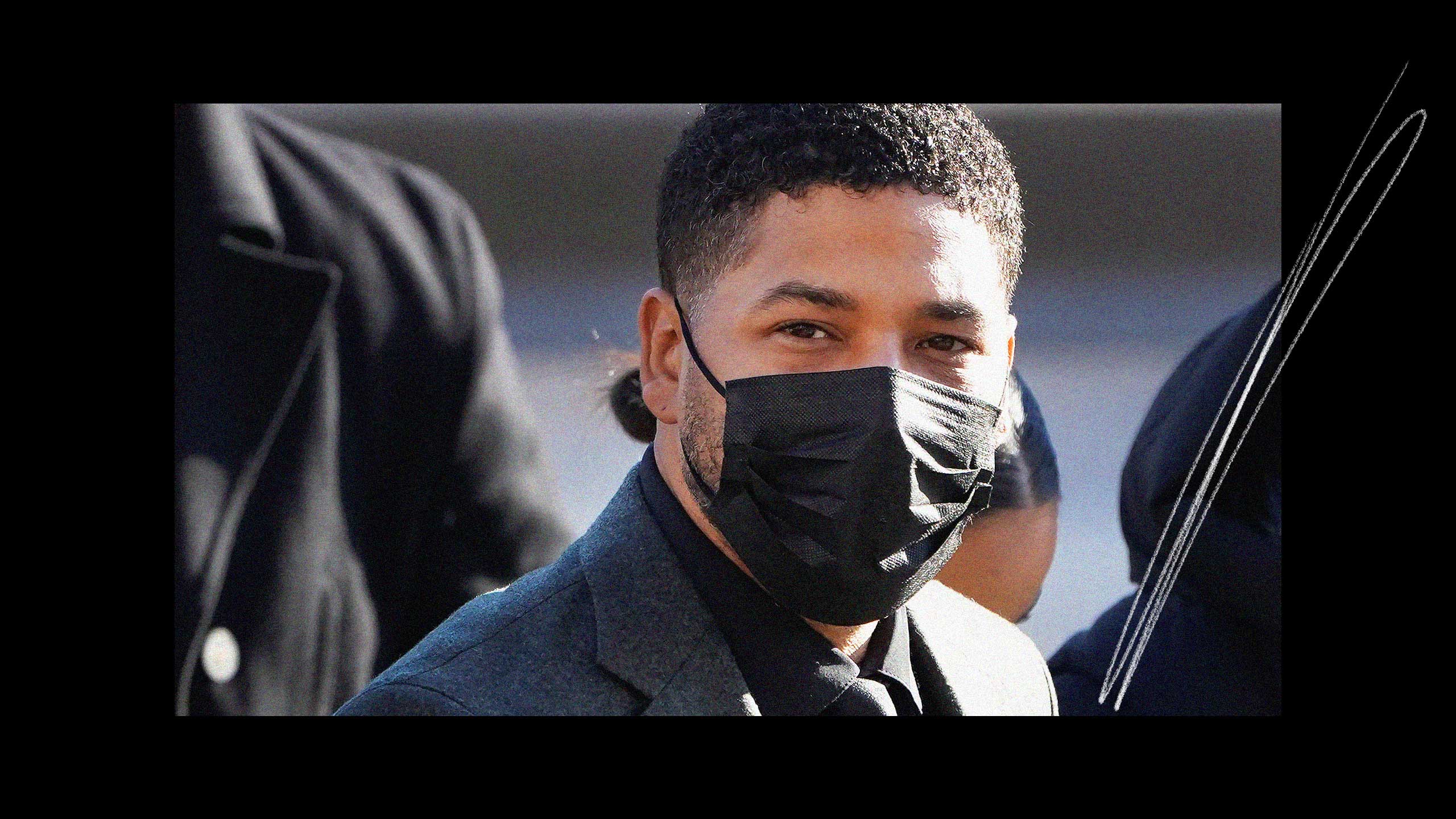Jussie Smollett was found guilty on Dec. 10 of lying to police about an allegedly staged hate crime, but the actor’s conviction doesn’t change the reality of hate-motivated violence in the United States. Hate crime hoaxes remain extremely rare, even as crimes targeting LGBTQ2S+ people and other minority groups remain vastly underreported.
The 39-year-old was charged on five counts of felony disorderly conduct resulting from a January 2019 incident in which he claimed he was assaulted by supporters of former U.S. president Donald Trump. Smollett, who is gay and Black, alleged that two men doused him in bleach and wrapped a noose around his neck while proclaiming, “This is MAGA country!” The incident became a national cause célèbre after numerous politicians and celebrities offered support for Smollett and strongly condemned anti-LGBTQ2S+ violence.
But Smollett’s story quickly began to unravel. The two brothers alleged to be responsible for the assault, Olabinjo and Abimbola Osundairo, claimed Smollett paid them $3,500 to pretend to beat him up. During a one-week trial held in Chicago after Smollett was indicted by a grand jury in February 2020, jurors were reportedly shown a surveillance video in which Smollett and the Osundairos appear to be conducting a dress rehearsal for the eventual attack.
The actor has continued to maintain his innocence, although he admitted during the trial that he knew the brothers prior to the alleged altercation. Abimbola worked as an extra on Empire, the Fox music industry drama on which Smollett appeared from 2015 to 2019. Prosecutors claimed that Smollett staged the attack as leverage in a salary dispute with the show’s producers.
“If Smollett is the exception that proves the rule, the rule is that hate crimes remain widely underreported.”
Although the trial has been exploited by the American far-right—including Trump and members of his family—to suggest that the majority of hate crimes are falsified, the fact remains that cases like Smollett’s are few and far between. Fewer than 0.2 percent of hate-motivated attacks reported to police are later found to be hoaxes, as the Center for the Study of Hate and Extremism at California State University in San Bernardino told Quartz in 2019. For example, the non-profit think tank found just 49 hate crime hoaxes, for example, in the U.S. between 2016 and 2018.
If Smollett is the exception that proves the rule, the rule is that hate crimes remain widely underreported. The Bureau of Justice Statistics, housed within the Department of Justice, has estimated that about a quarter of a million hate crimes take place each year, ranging from physical violence to property crimes, but only 7,426 incidents were reported to the Federal Bureau of Investigations (FBI) last year. Even that seemingly more modest figure marked a 12-year high.
One reason that so many hate crimes slip through the statistical cracks is that police jurisdictions don’t record them as such. While approximately 18,000 state and local law enforcement agencies operate in the U.S., about 2,800—or 15 percent—failed to submit hate crime data to the FBI in 2020. Seventy-one cities with populations over 100,000 didn’t report a single hate crime last year, including Baltimore, Maryland; Anaheim, California; Plano, Texas; Savannah, Georgia; and St. Petersburg, Florida. This list also includes the entire state of Alabama, home to 4.9 million people.
Minority groups may also decline to contact police after experiencing hate-motivated attacks in fear of not being believed or being further victimized by law enforcement. Even as 2020 saw a 71 percent increase in violence against Asian Americans due to racist scapegoating for the COVID-19 pandemic, this group is the least likely among racial minorities to report hate crimes, according to research from the non-profit AAPI Data.
“For every alleged ‘hoax,’ there are dozens—if not hundreds—of hate crimes taking place in the U.S. every day.”
The disparities are particularly stark for trans Americans. Although the FBI records about two dozen anti-trans homicides in any given year, tracking data from LGBTQ2S+ advocacy groups tell a very different story. According to the Human Rights Campaign (HRC), a record 51 transgender people have been killed in the U.S. in 2021, far outstripping 2020’s previous high-water mark of 44. The vast majority of victims were Black women, and many were misgendered and deadnamed by police and local media following their murders.
LGBTQ2S+ activists believe that the number of trans Americans killed each year is much higher than even the HRC’s figure. But even if all these deaths were properly recorded, the nation’s laws have yet to catch up to these epidemic levels of violence: 27 U.S. states currently do not recognize homicides motivated by the victim’s gender identity as hate crimes, according to the Movement Advancement Project.
Smollett has yet to be sentenced, but the charges on which he was convicted carry a maximum of three years in prison, according to the New York Times. His sentencing is likely to attract even more attention from conservatives with an interest in downplaying the real violence that minority groups face and the difficulties they may experience in receiving justice. The right-wing trolls who widely celebrated last week’s verdict on Twitter will make it even harder for these victims to come forward.
For every alleged “hoax,” there are dozens—if not hundreds—of hate crimes taking place in the U.S. every day that are missing from the data, if the FBI’s estimation is correct. These invisible survivors deserve better than to have their experiences erased even more than they already are.


 Why you can trust Xtra
Why you can trust Xtra


